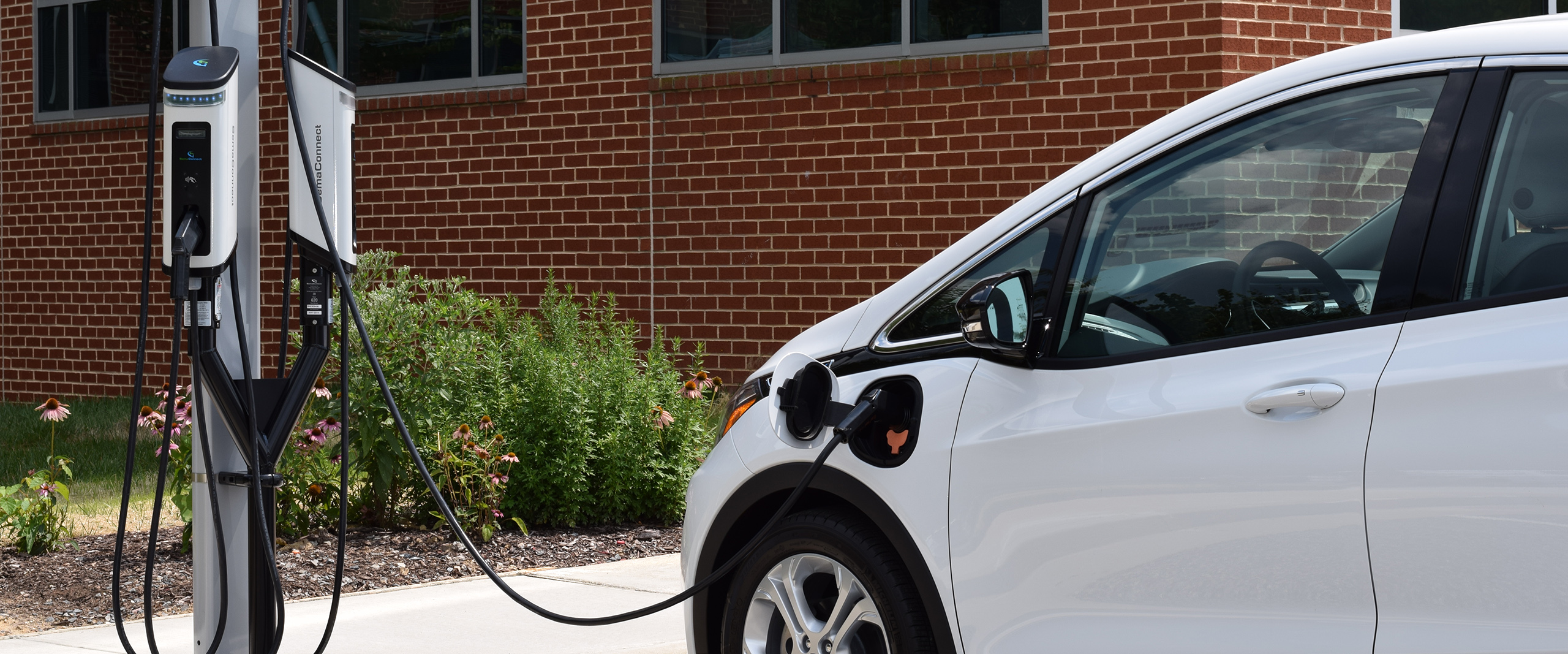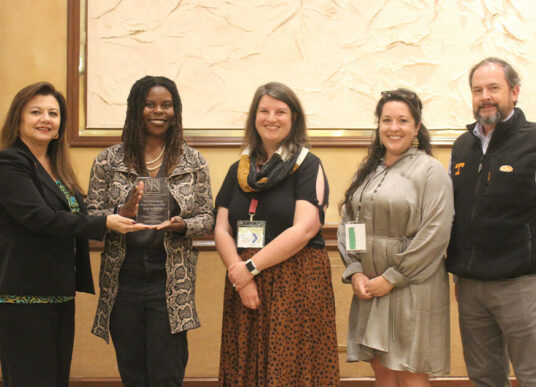From compact cars to SUVs and trucks, vehicles fueled by alternative sources have greatly expanded over the last decade and are expected to continue evolving and growing in popularity.
To prepare for the forecasted increase in these types of vehicles, the Tennessee Department of Transportation (TDOT) conducted a year-long analysis of electric vehicle (EV) station equipment and compressed natural gas (CNG) refueling infrastructure along I-40, one of the country’s most critical interstate corridors. Through funding established by the Federal Highway Administration’s (FHWA) Alternative Fuels Corridor Deployment Plan program, KCI was tasked with leading a multi-state effort in developing an alternative fuel deployment plan to bring segments of I-40 into “ready” status, meaning alternative fueling and charging infrastructure is available every 50 miles.
I-40 was the first corridor in the Southeast to be selected by the FHWA program. A full realization of the plan’s vision would result in an approximately 1,000-mile-long corridor that would play an important role in establishing a network of alternative vehicle fueling and charging facilities throughout the region. Additionally, this planning effort established best practices for the development of the recent Tennessee Electric Vehicle Infrastructure (TEVI) Deployment Plan, which focused on scaling the effort to bring all FHWA-designated alternative fuel corridors in Tennessee into “corridor-ready” status.
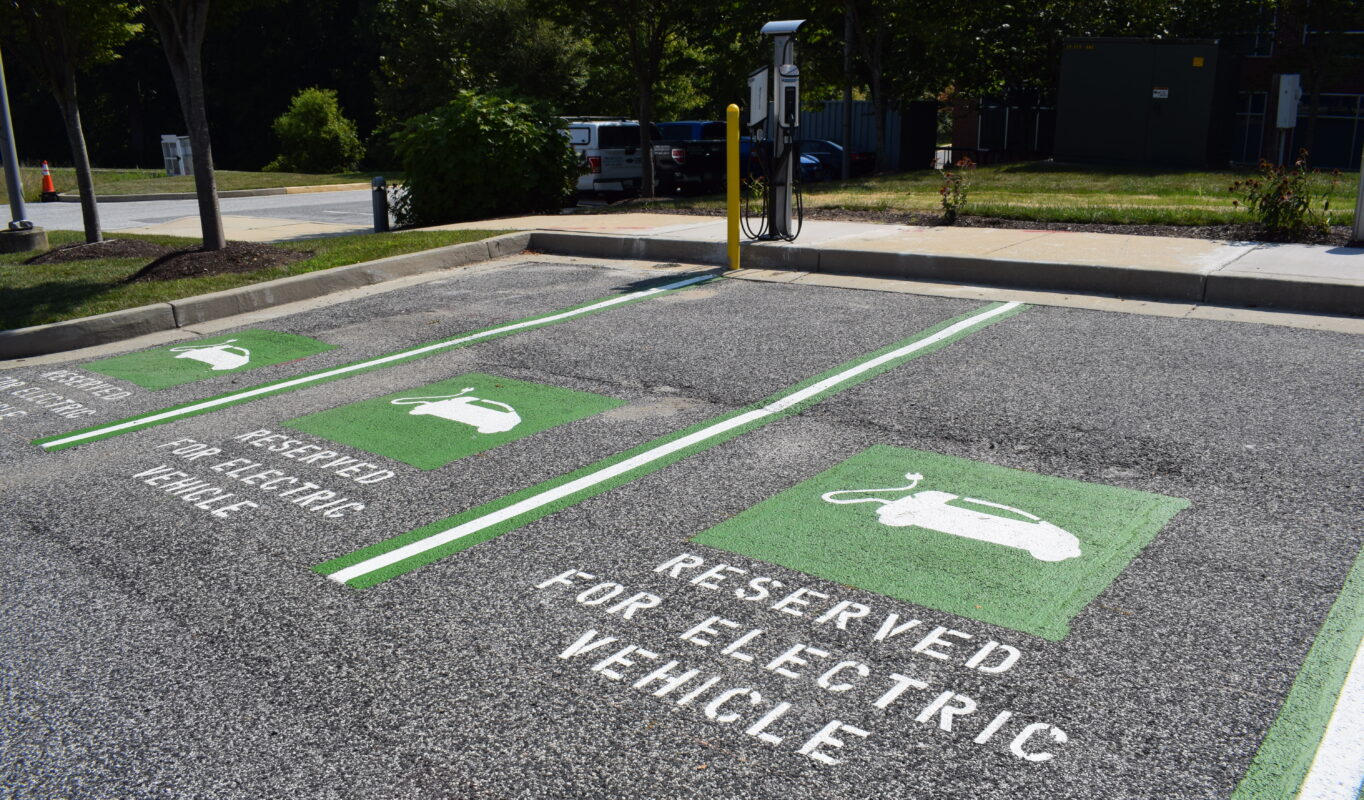 Across the nation, drivers and fleets are being encouraged to shift from traditional gasoline vehicles to alternative fuel options that will result in a reduction of overall emissions.
Across the nation, drivers and fleets are being encouraged to shift from traditional gasoline vehicles to alternative fuel options that will result in a reduction of overall emissions.To assist transportation agencies with planning for the deployment of alternative fueling and charging facilities, FHWA solicited submissions from state and local officials in 2019 to identify candidate corridors. Following their submission, TDOT was awarded a research grant and provided additional funding to conduct a study focused on a segment of I-40 that spans from the coast of North Carolina, through Tennessee and Arkansas, to Oklahoma. Working with multiple stakeholders and jurisdictions, including state DOTs, MPOs, Councils of Government, TVA, and Clean Fuel Coalition non-profits, KCI worked to identify potential EV and CNG station locations and recommended implementation strategies to establish and maintain relationships with site hosts through public-private partnerships. In addition, our team identified challenges and opportunities related to implementation, including funding, installation, and maintenance costs.
KCI’s assessment included an inventory of existing EV and CNG stations along the I-40 corridor. Using FHWA’s designation criteria, qualifying stations must be within five miles of a designated roadway and meet the allowable distance between stations, in addition to satisfying requirements that pertain to specific fuel types. Our findings showed that there were 25 qualifying EV stations and 19 qualifying CNG stations within the study area, bringing the corridor to 50% “corridor-ready” status.
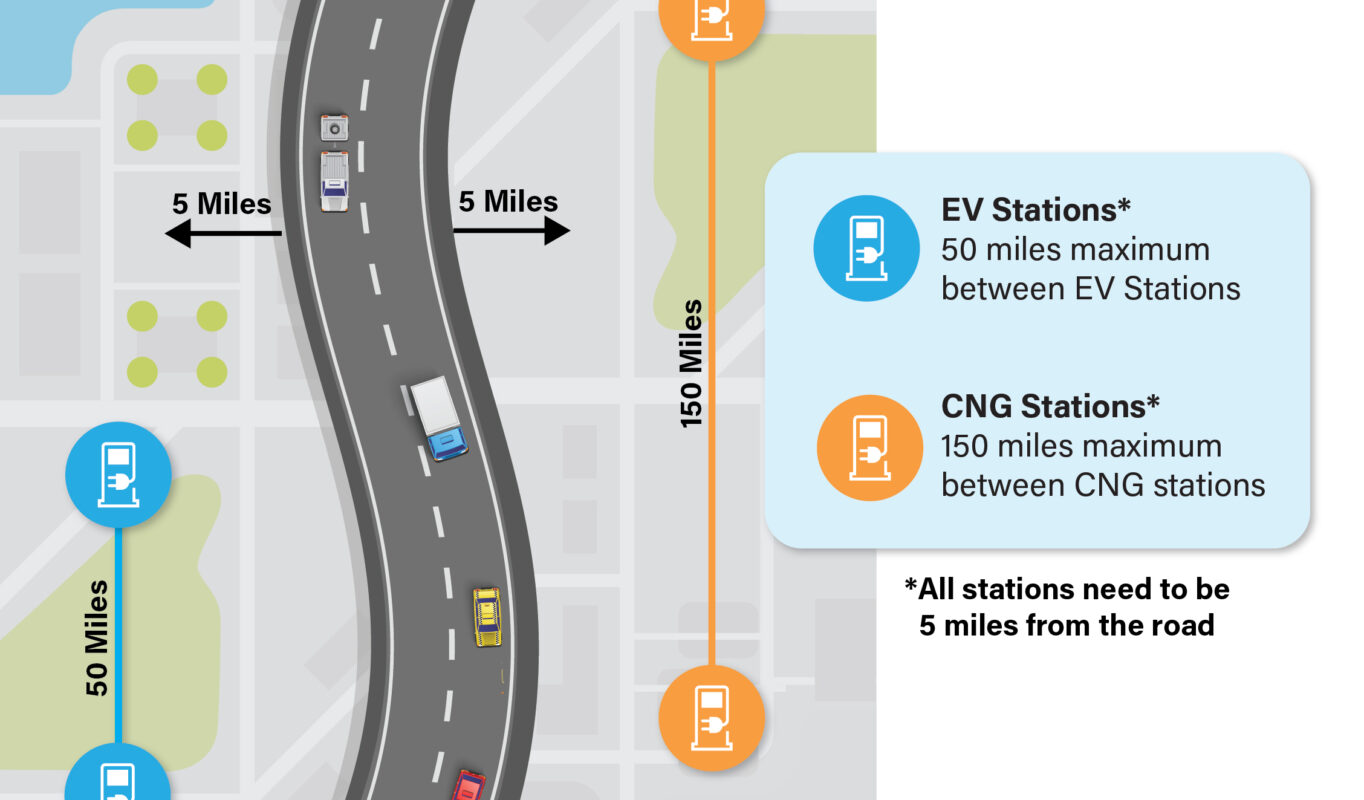 Over the years, the infrastructure requirements for alternative fuels have changed to reflect equipment advancements and faster charging speeds.
Over the years, the infrastructure requirements for alternative fuels have changed to reflect equipment advancements and faster charging speeds.This inventory allowed the team to identify gaps along the corridor and highlight areas where expansion efforts needed to be focused. To pinpoint interchanges within the corridor that had the highest number of new potential site locations, a geospatial analysis was conducted to provide a general overview of the availability of potential sites. Other factors were also considered, such as local regulations, access to power and gas lines, parking availability, and other amenities. By focusing on this data and analysis, the KCI team developed a plan to bring all segments into “ready” status.
Establishing the plan’s vision meant building upon strategic partnerships, particularly with national organizations that had already been working on alternative fuel infrastructure, as well as local governments and utility companies. Our team organized four virtual regional meetings which were held in all three states with the local entities. Each provided critical feedback on regional best practices for host and site selection and identification of potential barriers. Following these engagement efforts, KCI’s transportation planners outlined best practice implementation strategies and documented potential funding sources to assist with implementation. A variety of funding mechanisms were identified to construct the charging network, including leveraging tax reductions and exemptions for encouraging private investments, vehicle registration fees, and federal grant funding programs, such as the Congestion Mitigation and Air Quality Improvement (CMAQ) Program, National Electric Vehicle Infrastructure (NEVI) Formula Program, Highway Infrastructure Program (HIP) and those offered under the new Infrastructure Investment and Jobs Act (IIJA).
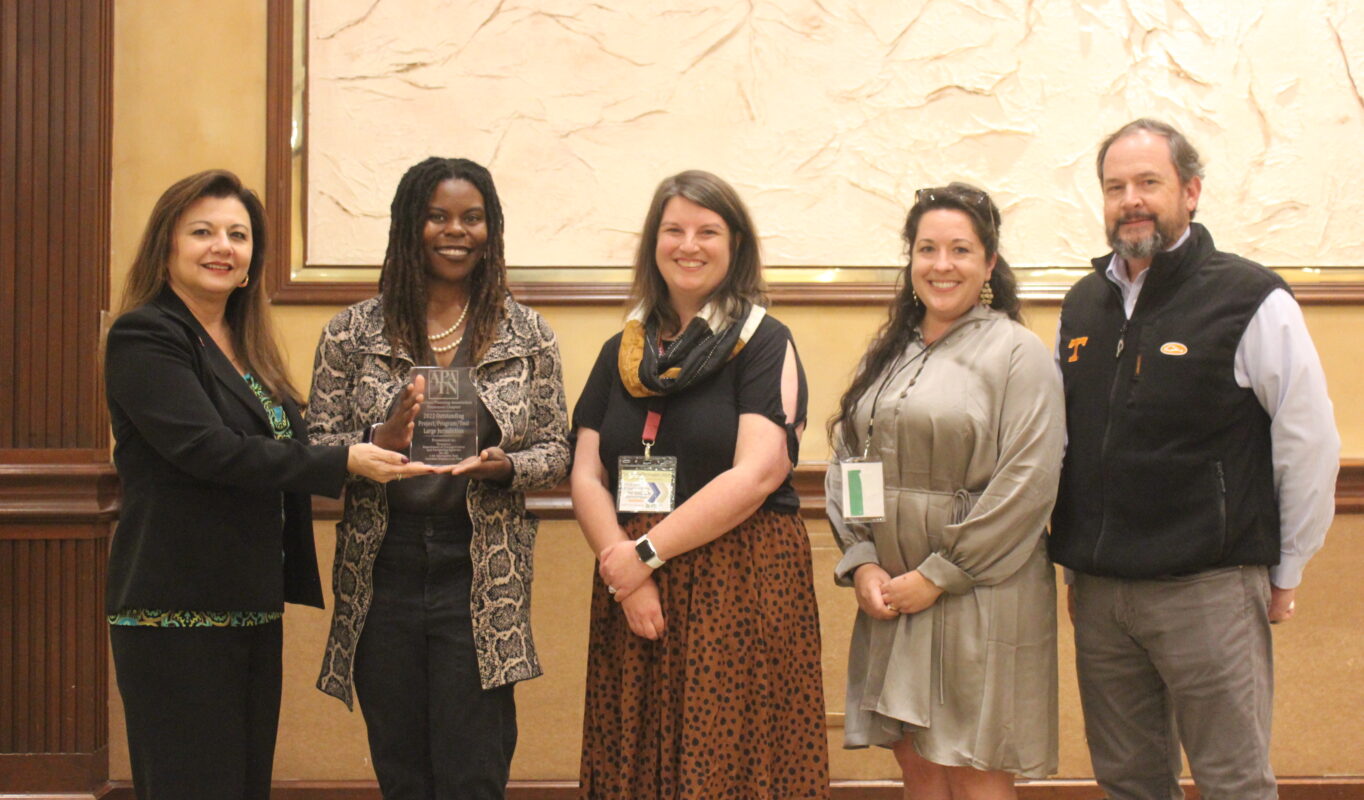 The Tennessee Chapter of the American Planning Association recently honored the I-40 Alternative Fuel Corridor Deployment Plan with an Outstanding Project/Program/Tool for a Large Jurisdiction Award.
The Tennessee Chapter of the American Planning Association recently honored the I-40 Alternative Fuel Corridor Deployment Plan with an Outstanding Project/Program/Tool for a Large Jurisdiction Award.Completed in November 2020, the I-40 Alternative Fuel Corridor Deployment Plan supports increased investment in green energy technologies to reduce greenhouse gas emissions. Continued collaboration among partners will be essential to the future implementation of EV and CNG infrastructure along the corridor, and this document will serve as a guide for agencies and stakeholders across the Southeast to efficiently implement future stations.
